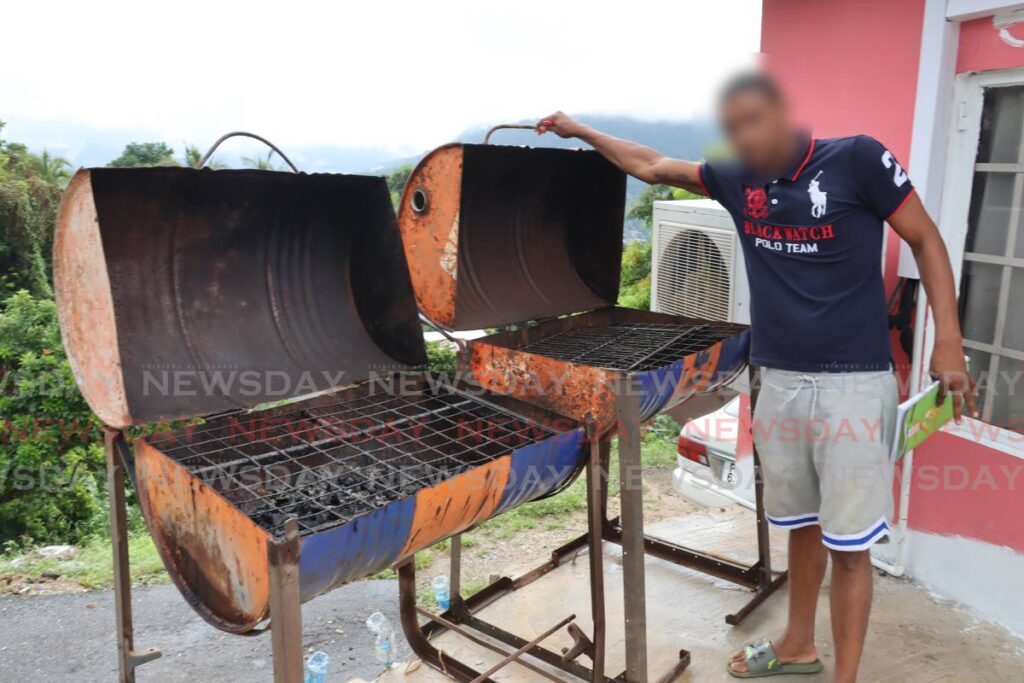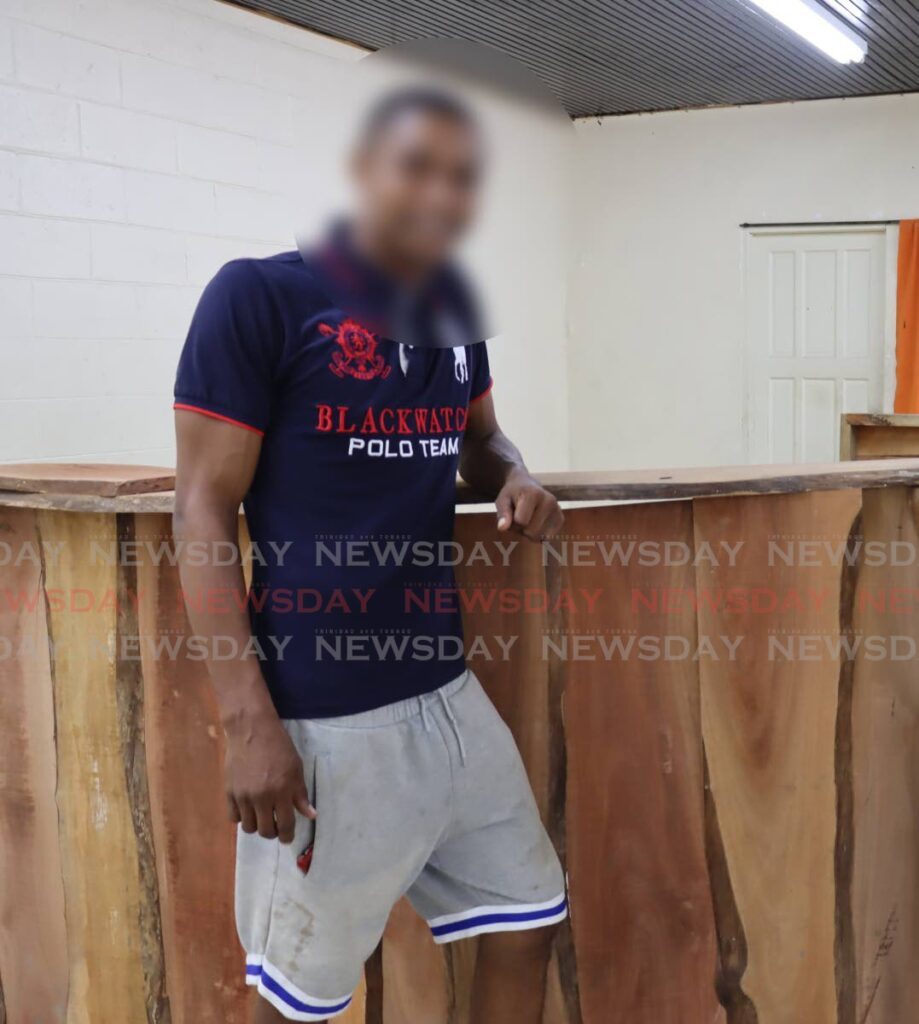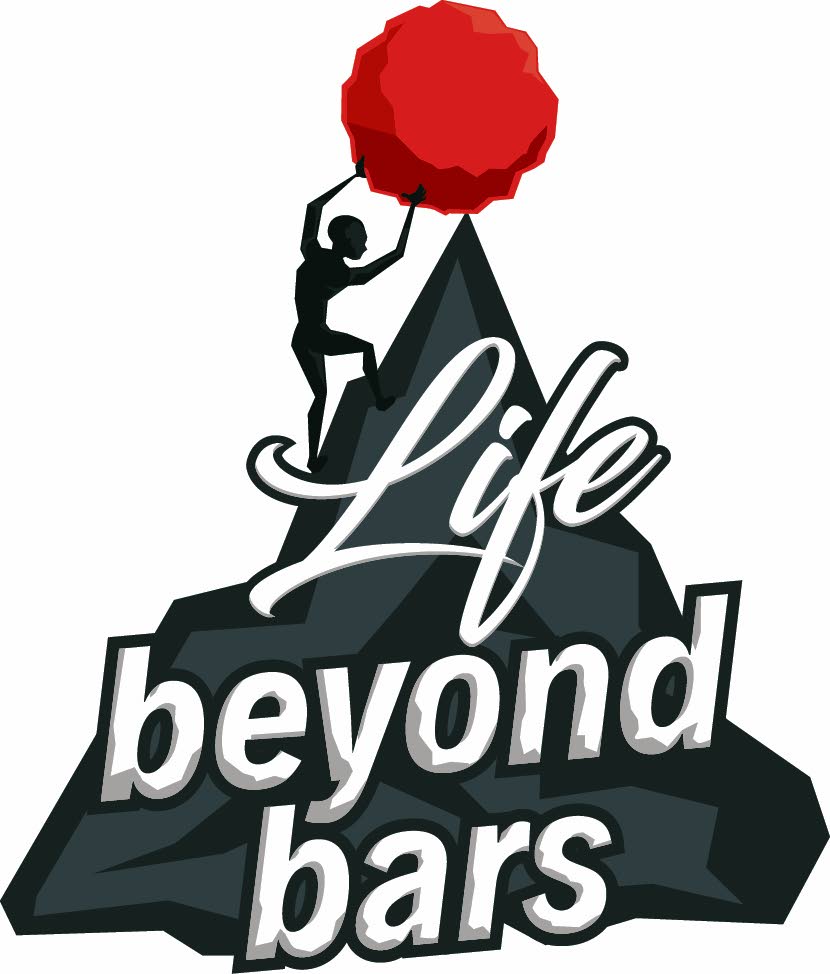'Farming, a good way to stay on right path'

No one ever expected them to succeed. Many people were sure they would end up back behind bars.
Sunday Newsday tracks the progress of eight men who won their cases or got out on bail. Their lives outside prison are featured in a series on inmates from Debbie Jacob’s CXC English classes and debate teams.
Why did these men make it when so many others failed?
Read their stories of redemption, rehabilitation and reinvention in the Sunday Newsday.
Part V
Debbie Jacob
Life delivers unexpected blows, but CB, out on bail on a murder charge, believes the best way to fight back is to plan for the future.
In Paramin, where he grew up, he works to provide for his six-year-old daughter. He’s trying to make up for the five years and four months he spent in remand waiting for a court date that still has not come through.
In Port of Spain Prison, CB joined the debate team. In workshops, he had notable charisma, but his hands trembled when he delivered his arguments. He persevered and gained confidence; then, the night before a debate with Women’s Prison, his girlfriend died.
“She suffered from lupus, and I wasn’t there for her. We were friends since she was 12 and I was 14. We lived together since she was 18.
"I went to the debate the day after she died. It was my tribute to her,” he said.
CB, 32, thinks of himself as a reliable person who shows up and faces all the hard times. His girlfriend’s death was his biggest test. He knows there are more tests to come.
When he came home from prison after getting bail, CB’s first decision was to throw a barbecue.
“I owed the bailor, and I needed to get funds for myself to live,” he said.
Next, he turned to agriculture, which suited his needs for order and planning.
“My family has lots of land. I started to cut it, but I wasn’t so strong. I got soft in prison. I planted chive and thyme to get started.”
He lives in a simple board house that he’s fixing up. That too requires planning.
“I lived by my mother for two months when I first came out of prison, but felt I wouldn’t see progress living there. I was comfortable, so I wouldn’t move forward. By going to my own home, I have to concentrate on uplifting my life.”
He knows he is luckier than many ex-inmates when it comes to providing for himself and his family.
“My grandfather gave me land. My former boss in construction gave me back my work part-time. He helped me to get on my feet.
"But my mind is on agriculture and keeping myself in order.”
Planning for the unexpected makes agriculture a rewarding challenge.

“The weather makes it hard, but I want to plant in a big way – cabbage, tomatoes, peppers, chive and pumpkin. In the future, I want livestock: cows, goats, pigs, fowls. The way the world is going, food might become a problem to get. Prices are rising, so we have to put ourselves in order.”
CB believes agriculture offers hope and security for anyone who struggles to get a job.
“Food is always in demand. A simple thing like planting chive means you will always have money. It keeps you focused. You need to be there to tend your crops. You can’t invest money in a crop and then not take care of it. Agriculture keeps your mind from straying, and you don’t have time to study stupidness.”
When he looks around his land in Paramin, CB sees gardens everywhere.
“There’s nothing else up here. I grew up in agriculture. My parents minded me due to agriculture. It sent us to school and bought shoes and books. It’s like a trade to me. I’m also working on my farmer’s badge from the Ministry of Agriculture.”
CB said he plans to turn agriculture into a business to employ others.
“There’s a lot of youths that people don’t want around them. I want to help those who are being shunned in society. I feel I can show them the right way and give them a purpose. They could get a salary and stability working in my agricultural business.”
He’s certain he would be a good employer, because CB said he developed communication skills while in prison.
“I learned there are a variety of ways to communicate with people. The peace education class and the debates taught me a lot. They were my foundation classes.”

The prison debates provided opportunities to develop communication skills in unexpected ways.
“I got to go on radio programmes and television news, and all of those times I had no chains on my hands or feet. Those opportunities helped me communicate with people.
"In prison, I witnessed a lot of violence, but I learned to say, ‘Whatever.’ I learned to keep my composure.”
He said knowing the consequences of violence made him think about his actions.
“I am a more humble guy now because of my education and experiences. I’m wiser. I have knowledge of what can happen to you when you get angry, and I have learned to make good decisions. If I have to make any decision now, it will be the right one.”
Here in the “free world,” CB feels like a very different person – more focused, better organised and future-minded.
“I know the devil is very busy. Most of the time I am by myself. I have a girlfriend.”
Ten years from now, he sees himself with an agribusiness, enjoying life, having his house fixed up, and taking care of his mother.
“My mom has always been there for me. My business will be named after my deceased girlfriend, Patrice Fournillier. I want to be stable so I can have my mind settled and make up for the time in prison where I lost my freedom and income.
“It helps to have a supportive family. If you have people who are for you, you will get that extra energy to come out of prison and uplift yourself.
"Some people have no one. I know people who can’t get $1,500 bail to leave prison.”
He believes actions and your attitude determine how others interact with you.
“How you live as an individual has a big part to play in your life. If you were a bad person to your parents, you wouldn’t have their support. I was bad – not harsh, but stubborn and not listening.
"Your mindset lands you in prison. No one put you there. You ended up there because of what you did, the company you kept, or not listening.”
He knows the strength it takes to put prison behind you.
“Prison plays with your mind. You have to be mentally stable and strong to face everything and come out good. You have to believe, have faith, pray a lot and stay positive.
“I remember once in the holding bay under court, an elderly inmate told me, ‘Youth, this is not the last stop in your life. Always stay positive.’
"I held that in my mind and told other inmates what he said. Out here, I say the same thing. ‘Never give up. Always stay positive.’
“In prison, some men used to cry out, ‘Only jail. Only jail.’ and I used to shout, ‘No! You are bringing that negative energy to you.' If you stay strong and say, ‘Freedom!’ that uplifts your spirit.”
When he’s not working, CB enjoys outdoor activities with his daughter – going to the botanic gardens and the zoo. When alone, he watches movies and documentaries.
“I like animals and nature, and to know what’s going on around the world. Watching a documentary is very educational.”
Just before we spoke, he was watching a documentary about his own life.
“I didn’t get to see it while I was in prison,” he said.
CB can’t believe that someone deemed his experiences in life worthy of a documentary. That was never in his plans.
Editor's note: The name of the subject of this piece has been withheld as he is still to be tried, and Newsday wishes to avoid influencing the fairness of his trial.


Comments
"‘Farming, a good way to stay on right path’"